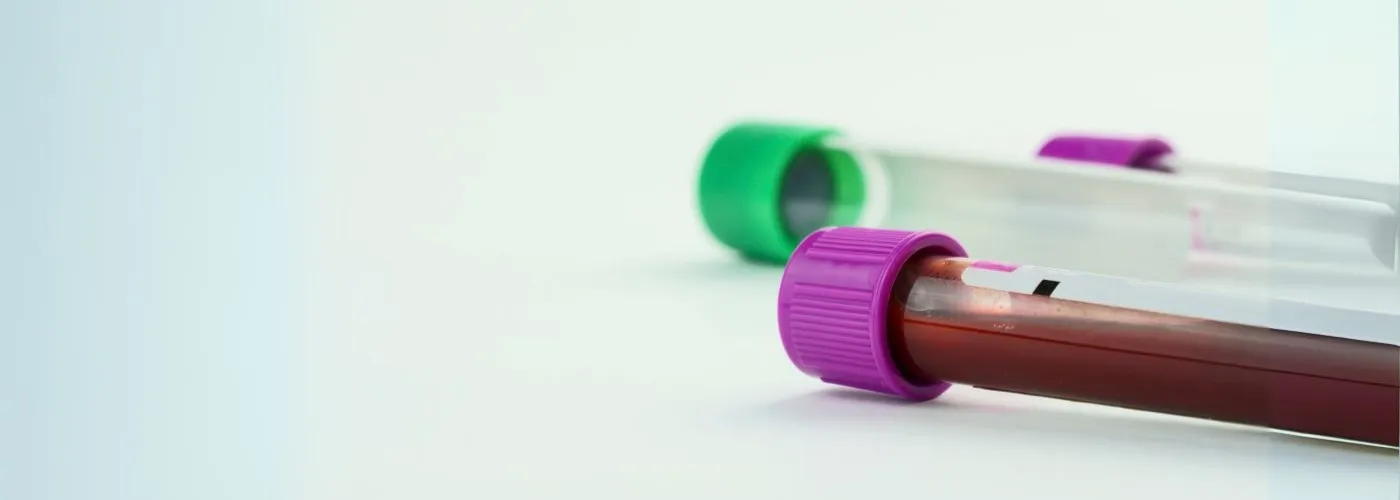
Colorectal cancer is one of the leading causes of cancer-related deaths globally. Early detection is key to successful treatment, and there are several screening options available, including colonoscopy and blood tests. However, which method is the most effective?
At Gleneagles Hospitals, we offer state-of-the-art diagnostics and tailored cancer screening packages. Understanding the differences between a colonoscopy and a blood test can help you make an informed decision about your health.
A colonoscopy is a procedure that allows a doctor to directly examine the interior lining of the large intestine (colon and rectum) using a long, flexible tube equipped with a tiny camera.
Colonoscopy enables physicians to inspect the entire colon in real time, detecting abnormalities such as polyps, inflammation, or tumours.
If a polyp or suspicious lesion is found during the procedure, it can be removed or biopsied immediately, preventing potential cancer development.
The procedure typically takes 30 to 60 minutes and is performed under sedation. Patients must follow a bowel prep routine beforehand to ensure the colon is clear for accurate viewing.
Colonoscopy is recommended every 10 years starting at age 45 for average-risk individuals. Those with family history or symptoms may require earlier or more frequent screening.
Choosing between a colonoscopy and a blood test depends on various factors, including your age, medical history, and risk level.
Colonoscopy remains the most effective method for early detection of colorectal cancer. It allows doctors to see, biopsy, and remove lesions during a single session.
Detects hidden (occult) blood in stool using antibodies. This test is done annually.
Uses a chemical to detect blood in the stool. This is also done annually.
Sigmoidoscopy allows direct visual inspection of the lower part of the colon (up to approximately 60 cm). FIT or high-sensitivity gFOBT helps detect hidden blood in the stool, which may indicate lesions or cancer beyond the reach of the sigmoidoscope.
Early detection significantly improves survival rates for colon cancer. Knowing when to start screening is critical.
Current guidelines recommend that adults with average risk begin colon cancer screening at age 45. Those with higher risk factors may need to start earlier.
Individuals with a first-degree relative who had colorectal cancer should consider screening at age 40 or 10 years before the age their relative was diagnosed—whichever comes first.
If you experience rectal bleeding, unexplained weight loss, persistent abdominal pain, or changes in bowel habits, you should consult a healthcare professional immediately.
Depending on the method used:
No. Colonoscopy is generally performed under sedation, so most patients experience minimal discomfort during the procedure.
Blood tests are less reliable than colonoscopy for early detection. They may be used in conjunction with other screening tools.
Complications are rare but can include bleeding or perforation, especially if a polyp is removed. These risks are minimised when performed by experienced specialists.
Preparation includes a clear liquid diet and taking prescribed laxatives to empty the colon. Your doctor will provide detailed instructions.
Yes. If you prefer a non-invasive option initially, a stool test may be used as a first step, followed by colonoscopy if results are abnormal.
Colorectal cancer is highly treatable when detected early. Colonoscopy remains the most comprehensive and accurate tool for detecting and preventing this cancer. Understanding your personal risk factors and having an open conversation with a healthcare provider.
At Gleneagles Hospitals, we provide a wide range of cancer screening services tailored to your needs. Book your appointment today and start your journey toward better health. Our team is here to support you every step of the way. You may also book an appointment via the MyHealth360 application, available on the Google Play Store or Apple App Store.
Cleveland Clinic. (2022, November 11). Colonoscopy: Prep & Procedure Details. Cleveland Clinic. Retrieved May 22, 2025, from
https://my.clevelandclinic.org/health/diagnostics/4949-colonoscopy
National Cancer Institute. (2024, October 29). Screening Tests to Detect Colorectal Cancer and Polyps. National Cancer Institute. Retrieved May 22, 2025, from
https://www.cancer.gov/types/colorectal/screening-fact-sheet

Wait a minute